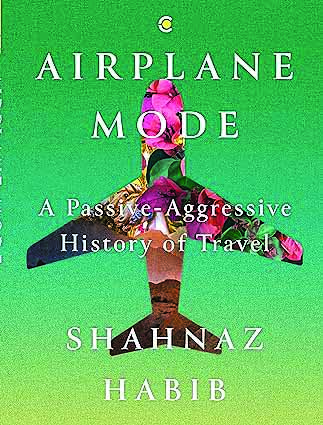
In the cacophony of modern life, travel often stands as a beacon of escape, promising adventure and discovery. But for Shahnaz Habib, an Indian Muslim woman, travel is a nuanced tapestry woven with threads of joy and complication. In her captivating debut, “Airplane Mode,” she embarks on a playful yet profound exploration of travel from a postcolonial, person-of-color perspective, inviting readers to ponder the intricate intersections of colonialism, capitalism, and climate change in the realm of wanderlust.
At its core, “Airplane Mode” poses a poignant question: What does it mean to revel in the delights of travel while navigating the remnants of colonial legacies and the specters of environmental degradation? Through a mosaic of personal anecdotes, cultural reflections, and astute observations, Habib embarks on a journey that transcends geographical boundaries, delving into the soul of travel itself.
Habib’s narrative traverses the globe, from pilgrimages to empires to safaris, unearthing the layers of colonialist ideologies that have long permeated the ethos of travel. With keen insight and a deft touch, she interrogates who holds the privilege of travel and, equally importantly, who wields the power to narrate these experiences. As a woman of color and an immigrant whose familial ties span continents, her perspective is both deeply personal and universally resonant.
Throughout “Airplane Mode,” Habib dismantles conventional notions of travel, offering fresh perspectives on familiar artifacts such as passports, carousels, and guidebooks. These seemingly mundane objects serve as portals into a subversive history of travel, challenging the Euro-American paradigm of travel as mere consumerism. Indeed, Habib reminds us that travel is imbued with a richness that transcends materialism—it is a tapestry woven with the threads of human connection, cultural exchange, and self-discovery.
What sets “Airplane Mode” apart is its unapologetic embrace of joy amidst the complexities of travel. Habib’s prose brims with a palpable sense of wonder and curiosity, inviting readers to revel in the sheer delight of exploration. Even as she confronts the darker realities of our world, from the legacies of colonialism to the existential threat of climate change, she refuses to relinquish the joy that travel brings.
Inhabiting the liminal space between memoir and cultural critique, “Airplane Mode” is as much a celebration of the human spirit as it is a call to action. Through Habib’s lens, travel emerges not as a frivolous pursuit, but as a profound act of resistance—a refusal to be confined by borders, both physical and ideological. It is a testament to the resilience of the human spirit, a reminder that even in the face of adversity, there is always room for joy, wonder, and connection.
In “Airplane Mode,” Shahnaz Habib invites us to embark on a journey of introspection and exploration, challenging us to reimagine the possibilities of travel in a world fraught with challenges. With its blend of wit, wisdom, and whimsy, this remarkable debut is sure to captivate readers and inspire a newfound appreciation for the transformative power of travel.